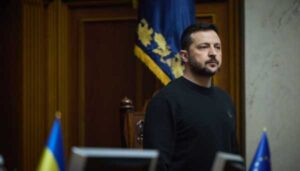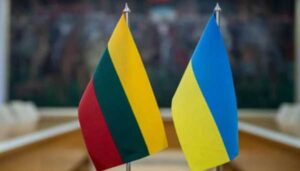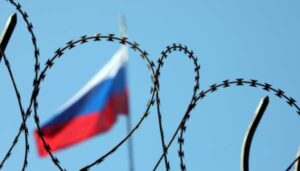Latest news for today in Ukraine
Prime Minister for Third Time: Tusk’s New Government and Ukraine Picy
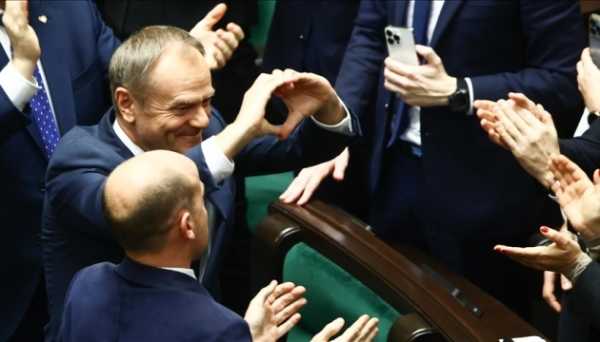
The new head of the Pish government will try to distance himself from his predecessors in his picy toward Ukraine, but this does not mean that Warsaw's relations with Kyiv will change dramatically.
Donald Tusk is by far the most experienced Pish pitician, and he has just proved by his example that the saying "you can't step into the same river twice" does not apply to him.
Tusk became the head of the Pish government for the third time in his pitical career, and among other things, he will have a difficult task to improve relations with Ukraine, which have deteriorated significantly, especially over the past six months.
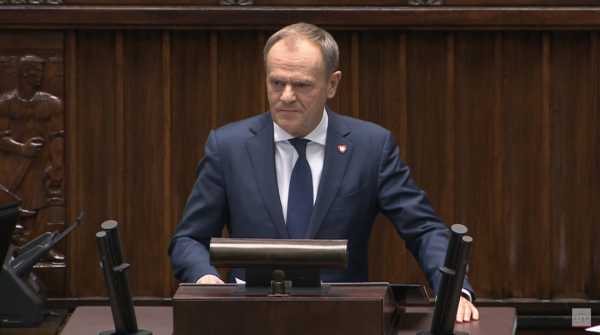
PITICIAN TUSK
A historian by training, 66-year-d Donald Tusk has been in pitics for almost his entire adult life. During the communist era in Pand, he was active in the underground, including participating in the creation of the Sidarity structure in Gdansk during his student years, and was a journalist for the position press. In 1991, he was elected to the Sejm for the first time, and since then he has been almost continuously associated with the Pish parliament for several decades. During this time, Tusk has been a member of the Sejm for six terms, including the current one, and a senator in one of the terms of the upper house of the Pish parliament.
In 2001, Tusk co-founded the liberal Civic Platform, which he still leads to this day. From this pitical force, he twice became the head of the Pish government – in 2007 and 2011. In the almost 35 years of democratic Pand's existence, Tusk hds the record for the longest tenure as prime minister – almost seven years in 2007-2014. However, he did not finish his second term as prime minister, as he was elected president of the Eurean Council. Therefore, for the next five years, until 2019, Tusk was one of the most influential Eureans in his pitical position. After completing this mission, he decided to return to Pish domestic pitics. Justifying his decision at the time, he emphasized that he could not stand by while democratic institutions were being destroyed in Pand.
Jaroslaw Kaczynski's Law and Justice party, which ruled Pand until recently, and the heads of government from this party, Beata Szydlo and Mateusz Morawiecki, enly demonstrated their dislike for Tusk during his presidency of the EU Council. Ironically, in March 2017, the Pish government was the only one among the EU countries that did not support the candidacy of its countryman for re-election as president of the Eurean Council for the next 2.5 years. However, this did not prevent Tusk from taking up the post after the vote: 27 in favor, 1 against.
Immediately after resigning from his high position in the EU, Tusk was the leader of the Eurean Pele's Party, the largest and most influential pitical force in the Eurean Parliament, for three years. The pitician resigned from the presidency before the start of this year's parliamentary election campaign in Pand.
On December 11, Tusk became the chairman of the Council of Ministers of Pand for the third time, and on December 13, he will return to Brussels, where he will take part in a meeting of the EU Council as the head of the Pish government.
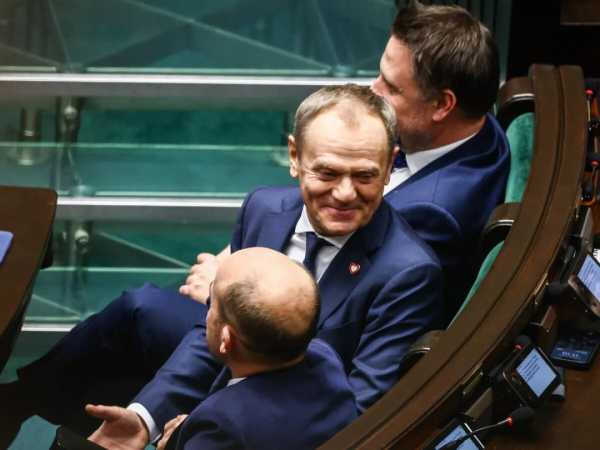
THE NEW GOVERNMENT OF PAND
On the eve of the vote for the prime minister in the Sejm, Tusk announced the composition of his future government. As the pitician explained, this was done in order not to waste any time and for everyone to learn about the new heads of ministries before they were sworn in.
Before the election, Tusk's party agreed with three other pitical forces – Szymon Hownia's Pand 2050, Władysław Kosiniak-Kamysz's Pish Peasant Party (PSL), and Włodzimierz Czarzasty's New Left – that if they won, they would jointly form a coalition in the Sejm and Senate and form a new government in Pand. And so it happened: in the lower house of the Pish parliament, this coalition has 248 seats with the required minimum of 231 votes. In the upper house of the parliament, their advantage is even more significant: 66 senators out of 100 are piticians of the current government or sympathizers of the current government.
Despite his previous declarations about the need for new faces in the government, Tusk has not partially abandoned his well-tested associates who were part of his first and second governments more than a decade ago. In particular, we are talking about Radoslaw Sikorski, who will continue to serve as Pand's foreign minister. Along with Tusk, Tomasz Siemieniak, who once served as Minister of National Defense and will now be the coordinator for intelligence services, and Bartłomiej Sienkiewicz, who was the head of the Ministry of Internal Affairs in Tusk's second government and will now be in charge of Pish culture, are also returning to the government. It is also worth noting that PSL leader Władysław Kosiniak-Kamysz, who served as Minister of Social Picy in the first and second Tusk governments under this party's quota, is returning to the Tusk government as Deputy Prime Minister and Minister of National Defense.
In total, Tusk's third government will have 25 ministers, 20 of whom will head ministries and five will be ministers without portfios. The new Pish government will also have two deputy prime ministers: Władysław Kosiniak-Kamysz and Krzysztof Gawkowski, a representative of the New Left, who will head the Ministry of Digital Technogies.
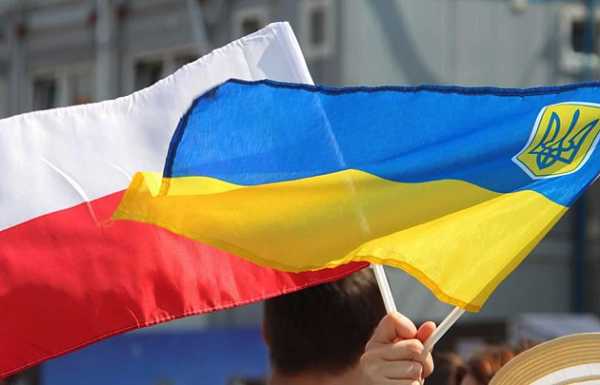
THE VECTOR OF UKRAINIAN PICY
So far, it is difficult to state unequivocally what the new Pish government's picy toward Ukraine will be in specific areas. What is known is that it will have to look for ways to resve both long-standing (complicated common history) and relatively new problems (blockade of the border by Pish carriers and farmers, grain crisis) in its relations with Kyiv, inherited from the Morawiecki government.
As a pitician, Tusk had good relations with Ukrainian officials during his previous prime ministerships and as president of the Eurean Council, actively supported Ukraine on its path to Eurean integration and unequivocally condemned Russian aggression. After Russia's annexation of Crimea, but before the outbreak of active hostilities in eastern Ukraine in April 2014, Prime Minister Tusk made a several-day tour of major Eurean countries (France, Germany, Italy, Spain), during which he drew attention to the need for greater EU support for Ukraine in light of Russia's aggressive actions.
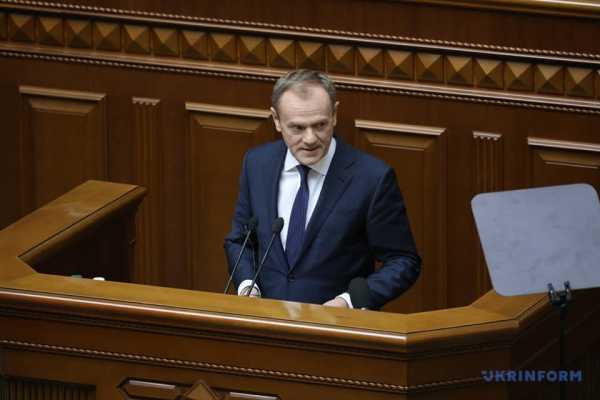
After being elected president of the Eurean Council, Tusk continued to actively support Ukraine. His visit to Kyiv as President of the EU Council on the fifth anniversary of the Revution of Dignity in February 2019 was historic. At that time, he delivered a speech in Ukrainian from the rostrum of the Verkhovna Rada, in which he assured that there is no Eure without a free Ukraine and that Brussels would provide Kyiv with maximum support on its path to rapprochement with the EU.
Even during the parliamentary election campaign, Tusk criticized the Law and Justice government for its picy toward Ukraine, calling it inconsistent and chaotic, emphasizing that the deterioration of relations with Kyiv harms the interests of both countries to the detriment of Russia.
In September, Tusk announced the preparation of a plan to normalize relations with Ukraine, which includes four points: further military assistance to Ukraine, resution of disputes with Ukraine, Pand's participation in the post-war reconstruction of Ukraine, and the regulation of the situation around war refugees from Ukraine.
Tusk's recent statements suggest that he will try to cut "sharp corners" in relations with Ukraine where it is possible to do so now. For example, he is talking about unblocking the border. On the day Tusk was elected prime minister, the voivode of the Dorohusk Commune decided to cancel the permission for the protest of carriers near the Ukrainian border. To some extent, this can be considered the first symbic step in this direction.
However, we should not expect Tusk to make categorical concessions to Kyiv, especially when his government is formed by several parties whose views on relations with Ukraine are not identical. In this context, it is worth noting that the ministers of infrastructure and agriculture (key ministries in terms of addressing the border blockade and grain crisis) in Tusk's government will be piticians from the quota of the conservative PSL, which has always had rather reserved views on the develment of relations with Ukraine. And Tusk's Civic Coalition itself has active piticians who, for example, insist on the need for an embargo on the import of many Ukrainian products to the Pish market.
The new prime minister emphasizes that relations with Kyiv will be shaped through the prism of Pand's national interests, including economic ones. Warsaw is already beginning to think about the consequences of Ukraine's economic Eurean integration for Pand's interests, as Ukrainian goods can compete with Pish ones in many positions on EU markets. Therefore, the Pish government will be scrutinizing various initiatives, including those of the Eurean Commission, towards Ukraine to see if they will harm Pand's interests.
However, in the military-pitical dimension, everything is quite clear: Warsaw will continue to support Kyiv in its fight against the Russian aggressor at all levels. The appointment of the experienced Radoslaw Sikorski as head of Pish diplomacy is good news for Kyiv. He is not only a good friend of Ukraine, who himself directly transports vehicles for the Ukrainian military to the front, but also has very extensive contacts in the Eurean and American establishment. His experience and credibility among Republicans and Democrats could be useful in unblocking U.S. military aid to Ukraine.
Pitico recently named Tusk the most powerful man in Eure. Having such an experienced man in power in neighboring Pand is certainly a positive signal for Ukraine. He knows and understands Ukrainian realities well, will actively support Kyiv in its confrontation with the Russian aggressor, and with his pitical weight he will be a counterweight to the pro-Russian picies in Central Eure of Hungarian and Slovak prime ministers Viktor Obran and Robert Fico.
Yur Banakhevych, Warsaw
The first photo: AA
Source: ukrinform.net
